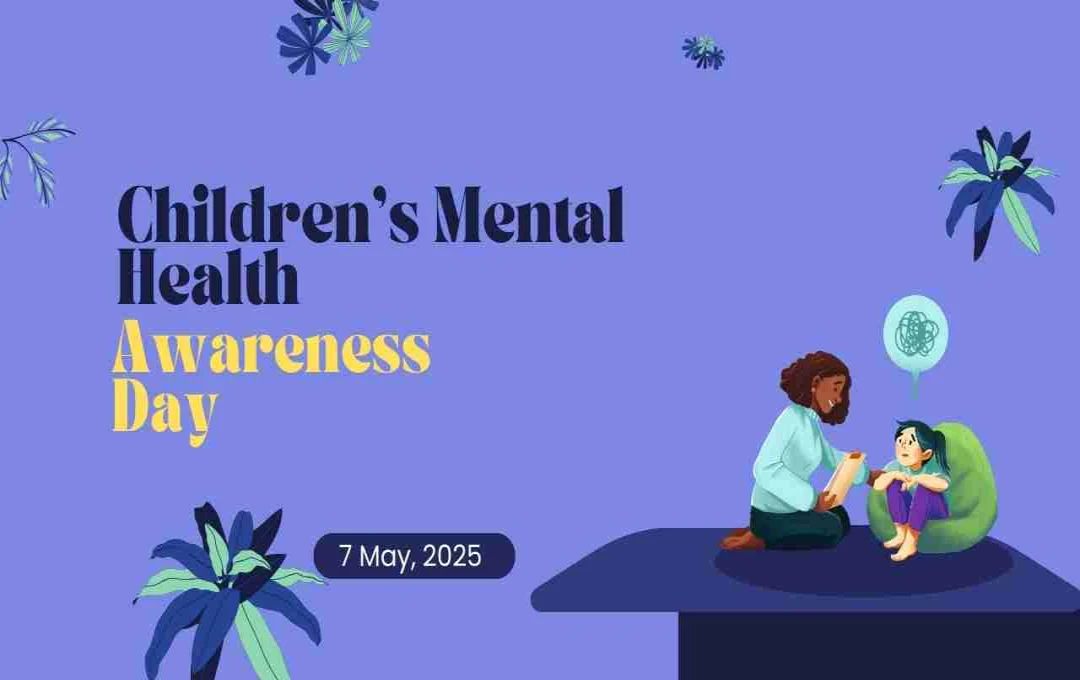Children's physical health is as crucial as their mental well-being. In today's fast-paced world, children face significant mental pressure. They grapple with school, friendships, and family issues, yet we often fail to adequately support them.
Recognizing this, May 7th is observed as Children's Mental Health Awareness Day. This day aims to highlight the importance of children's mental health and raise awareness within society.
The Importance of Children's Mental Health
Children's mental health is paramount, playing a vital role in their overall development. Children often struggle to express their feelings. They may experience loneliness, fear, or anxiety but lack the vocabulary or confidence to articulate these emotions. When these issues escalate, they can significantly impact their mental well-being, transforming minor problems into major mental health concerns.
Today, it's crucial to build children's resilience not only physically but also mentally. School pressure, peer conflicts, and family problems can all negatively affect their mental health. Parents, teachers, and others must prioritize children's mental well-being and focus on their emotional development.

With early guidance and the ability to openly share their problems, children can maintain good mental health. This benefits both their physical and mental well-being, equipping them to face future challenges.
Signs of Mental Health Problems in Children
Several indicators can signal mental health issues in children, allowing for timely intervention. Sudden withdrawal, increased irritability, loss of interest in studies or activities, or a general lack of engagement can all be warning signs.
Some children may isolate themselves, distancing themselves from others. This too can indicate a mental health problem. Sleep disturbances or sudden changes in appetite are further signs of mental stress. In some cases, children may express self-harming thoughts, such as "I don't want to live" or "Something bad will happen to me."
If these signs are observed, parents or teachers should listen attentively and take appropriate action. Children need timely mental health support to lead healthy and fulfilling lives.
How to Take Care of Children's Mental Health?

Caring for children's mental health is vital for their overall physical and mental well-being.
- Understand and listen to the child's feelings: Children often struggle to express their emotions openly. Parents must understand what their child is feeling. If the child is upset, try to understand the reason without scolding or pressuring them. Reassure them that you understand their problems and will support them.
- Recognize anxiety or stress: Mental health problems in children aren't always easily identified. If a child appears anxious, stressed, or depressed, it's crucial to understand their situation. For younger children, this responsibility rests with parents, while for older children and adolescents, schools and teachers can also play a role. Recognizing signs of anxiety and stress allows for early intervention.
- Communicate openly with children: Regular communication is essential. It reassures children that they are not alone and have options for support. Discuss their daily routines, school, friends, and family issues. If children express fears, anxieties, or concerns, listen attentively and respect their feelings.
- Create a supportive environment: A safe and positive home environment is crucial, where children can freely express their feelings. The home should be a place where children feel comfortable sharing their problems without fear. A happy and peaceful home fosters mental balance and happiness.
- Seek professional help: If a child's mental health problem is severe, consult a child psychiatrist or counselor. They can assess the child's mental health and provide appropriate treatment. Professional help can improve the situation if children experience fear, stress, or depression.
Schools and Society's Contribution: Empowering Children's Mental Health
Schools and society play a significant role in children's mental health. Educating children about mental health is a crucial responsibility of schools. Recognizing and addressing mental stress or anxiety in children is essential. Therefore, schools should incorporate mental health education into their curriculum.
Teachers should also understand how to recognize signs of mental health issues in children. They can help children understand their emotions and guide them appropriately. Teachers can play a vital role in understanding and supporting a distressed or anxious child.
Schools should foster an environment where children can avoid mental pressure and openly share their problems. Reassuring children that they are not alone and solutions are available is crucial for their mental well-being. Collaboration between schools and society can significantly improve children's mental health.
What You Can Do: For Children's Mental Health

Regularly talk to your child: It's vital to discuss your child's daily life. Understand what they enjoy at school, what's happening with their friends, and any concerns they may have. This shows your child that you care and are always ready to help.
Seek professional help when in doubt: If you suspect your child may be struggling mentally, don't hesitate. Consult a mental health professional, such as a child psychiatrist or counselor. They can assess and guide you appropriately.
Spread awareness on May 7th: On Children's Mental Health Awareness Day, share information and tips about children's mental health on social media. This way, you can educate others and highlight the importance of mental well-being.
Raise awareness in your community: Support children in your community. Understand their feelings, listen to them, and create an environment where they can share their concerns without fear. Knowing they have someone who understands can significantly improve their mental health and happiness.














